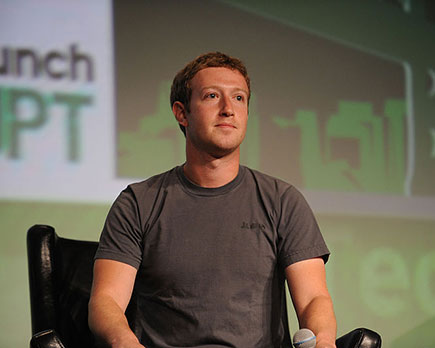Wheeler: I’ll Call Zuckerberg on Terrorism
The smarter way to stay on top of the multichannel video marketplace. Sign up below.
You are now subscribed
Your newsletter sign-up was successful

WASHINGTON — Federal Communications Commission chairman Tom Wheeler said he does not think his agency has the authority to start shutting down websites used to promote terrorist attacks like those in Paris, but said there might be some things the FCC could or should do when social media is used to promote violence.
He even pledged to use his bully pulpit to call Facebook chairman, CEO and co-founder Mark Zuckerberg to talk about the issue.
During a House Communications Subcommittee FCC oversight hearing, Rep. Joe Barton (R-Tex.), who has issues with how the agency is treating low-power TV stations in the broadcast incentive auction, decided to seek written responses and instead use his time to talk about the Nov. 13 Paris terrorist attacks.
Barton said he was going off-script. He said that terrorist groups such as Islamic State, which took credit for the Paris attacks, can't beat the U.S. militarily, but are trying to use the Internet and social media "to beat us psychologically."
Given that, he said, "Isn't there something we can do under existing law to shut those Internet sites down?" He said that even in an open society, when there was a clear threat, "we could do something about the Internet and social-media side of the equation."
Wheeler said he was "not sure our authority extends to picking and choosing among websites." But he did say there were specific things the government could do.
Barton asked whether Congress should give the FCC authority to shut down the sites. Wheeler said one issue was the question of what is considered a "lawful intercept" — something he said Congress can define, essentially updating the definition in the Communications Assistance for Law Enforcement Act (CALEA) wiretap law, which was passed in 1994.
The smarter way to stay on top of the multichannel video marketplace. Sign up below.
"You read in the press that they were using PlayStation 4 games to communicate, which is outside the scope of anything ever considered in CALEA," Wheeler said. He said updating the lawful intercept concept might be one avenue worth pursuing.
But network security is also an issue, Wheeler said, citing 17 "mysterious" cuts of fiber links in the San Francisco Bay Area in the last few months.
"We need to have some kind of a 'big data' capability of determining what's happening to our network out there," he said. That’s because network sabotage is as likely as people sending incendiary messages, he said.
He said the FCC has the only network-outage reporting system in the US., and it is "barely holding together with bailing wire and glue" because it uses "ancient" technology. He said has been asking for appropriations for updates.
"We have the ability inside our systems to use big data to connect the dots, "but we don’t have the capacity to do it," Wheeler said.
The chairman said he would work with the committee to update the laws.
Rep. Anna Eshoo (D-Calif.) said that the FBI was dealing with the House Select Committee on Intelligence relative to the Bay Area cuts.
Barton and Eshoo agreed that the network threats were a clear and present danger, and Eshoo said she did not think the cuts of the fiber were a coincidence. Barton said terrorists were using the Internet in an "offensive, inappropriate — Eshoo added "effective" — way and, at minimum, the government should make it more difficult, and perhaps "absolutely shut it down."
Rep. Bobby Rush (D-Ill.) talked about violence in Chicago and said it was well known that gang leaders are using social media to advance their violent agendas and conflicts.
He said he understood the FCC had limited jurisdiction over Facebook, Twitter and Instagram, but asked if there was anything the FCC could do in the interests of public safety to curtail the violence. He asked if the FCC would add its voice and stature to the discussion.
Wheeler said the issue was similar to terrorist using social media. "We do not have jurisdiction over Facebook and other edge providers, and we do not intend to assert jurisdiction over them, and I don't believe, as legitimate as your concern is, I don't believe we have the jurisdiction to do the kind of thing that you suggest."
Wheeler said he was happy to use his "bully pulpit" to talk to Zuckerberg and others to make the point that this is an important issue that needs to be addressed, but the FCC does not have regulatory authority over social media.
Rush said he was not asking for regulation. "I will call Mark Zuckerberg this afternoon to raise the issues you've raised and the issue that Mr. Barton has raised and I'm sure he [Zuckerberg] is concerned about this as well and has some thoughts," Wheeler said.
Contributing editor John Eggerton has been an editor and/or writer on media regulation, legislation and policy for over four decades, including covering the FCC, FTC, Congress, the major media trade associations, and the federal courts. In addition to Multichannel News and Broadcasting + Cable, his work has appeared in Radio World, TV Technology, TV Fax, This Week in Consumer Electronics, Variety and the Encyclopedia Britannica.

